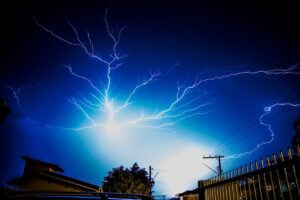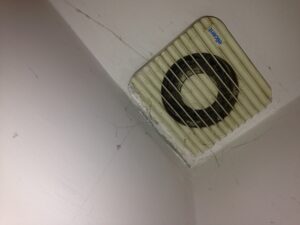You know this: never mix water and electricity.
Blow drying your hair in the bathtub? Bad idea. Swimming during a lightning storm? Worse. But why? While most of us learned in childhood not to mix water and electricity, the reasons behind the threat are more complex.
While water does conduct electricity, water itself is not an electrical conductor. However, impurities suspended in water are. These impurities include minerals and dust, miniscule elements that we do not normally associate with drinking water. However, when these tiny contaminants come into contact with electricity, “it’s on.” Because the contaminants in water carry electrical currents, engineers are able to use a special type of water to cool high voltage equipment, called low conductivity water (LCW), which is largely free of these microscopic particles.
We’re betting that your home does not run on LCW, so consider these methods for making sure that electrical currents in your home stay far, far away from your tap water:
1. Proper extension cords:
There are different types of extension cords for a reason. Never use an extension cord or power strip designed only for indoor use outside. These types are not designed to handle contact with the elements and using them can result in electrocution or fire.
2. Make sure your bathroom, kitchen, and outdoor areas have the right electrical outlets:
Newer homes are usually constructed to meet the National Electrical Code, but older models may not be. To be sure, ask your electrician to check your bathroom, kitchen, and outdoor outlets to make sure they are GFCI (ground fault current interrupter) receptacles and are installed on at least one separate 20 amp branch unit to accommodate high-wattage devices such as hair dryers and blenders.
3. Don’t be a power tool:
Drilling holes in your siding? Don’t do it in the rain or near the kiddie pool. Electrical power tools use high wattage and should never mix with wet conditions.
4. Keep appliances away from water:
In the case of washing machines and dishwashers, make sure that the water hookup is safely installed and does not have a leak. Dripping water onto a power cord can cause a home fire.
Preventing electrical emergencies in your home is often as easy as making sure your outlets, power cords, and appliances stay far away from water. If you are unsure about the outlets in your home or have further questions about electrical conductivity, contact Prairie Electric at se*****@************ic.com.


